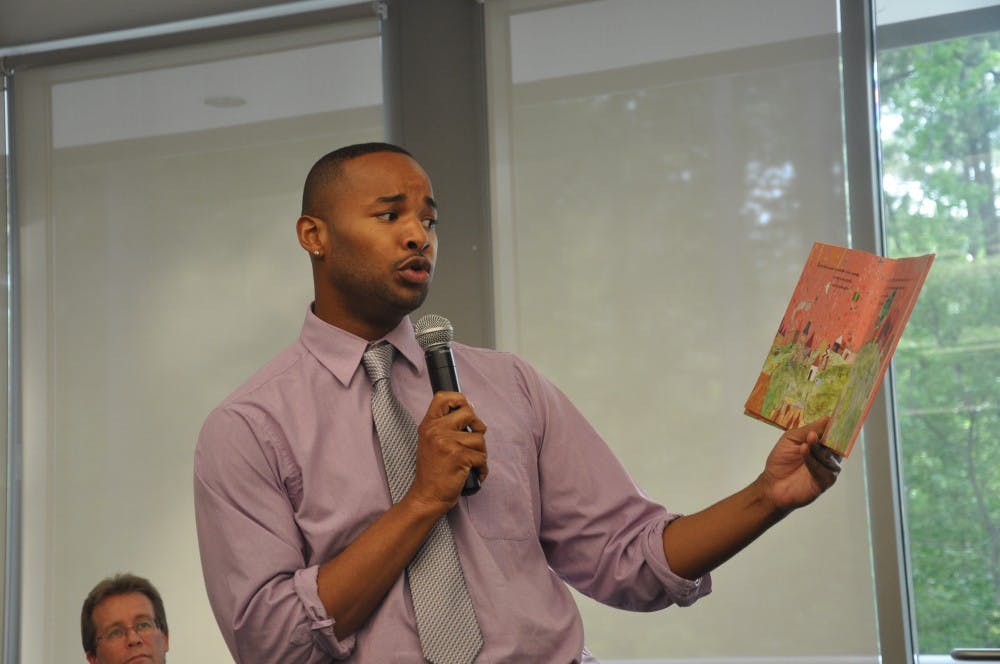Omar Currie, a former third-grade teacher at Efland Cheeks Elementary School, didn't think he was doing something brave when he read a children's book that features a relationship between two men to his class.
"For me it just seemed natural," he said. "It never crossed my mind to think that I was doing something brave."
Currie, who is gay, read the book "King and King" to his class at the end of April and faced backlash from some parents of his students over the appropriateness of the selection. He has since resigned from his position at the school, and he will be teaching fourth-graders at John Adams Elementary School in Alexandria, Va., in the fall.
On Wednesday evening, Currie joined a panel discussion at the Chapel Hill Public Library about the book and the ways teachers can introduce concepts like diversity to their classrooms. The panel is the first in a series called Between the Lines, where topics that are popular among the community will be discussed in a public forum.
"We thought that this would be a great topic to get this series started," said Susan Brown, director of the library.
Brown said libraries are a place where community members can gather to learn about and discuss controversial issues.
"They're a safe place to come and talk about things," she said.
Currie was joined on the panel by Mayor Mark Kleinschmidt; Kate Gallagher, a researcher in early childhood education at UNC's Frank Porter Graham Child Development Institute; and Brian Sturm, an expert on children's literature from UNC's School of Information and Library Science.
Currie decided to read the book to his class after a student was bullied for acting in a feminine way.



